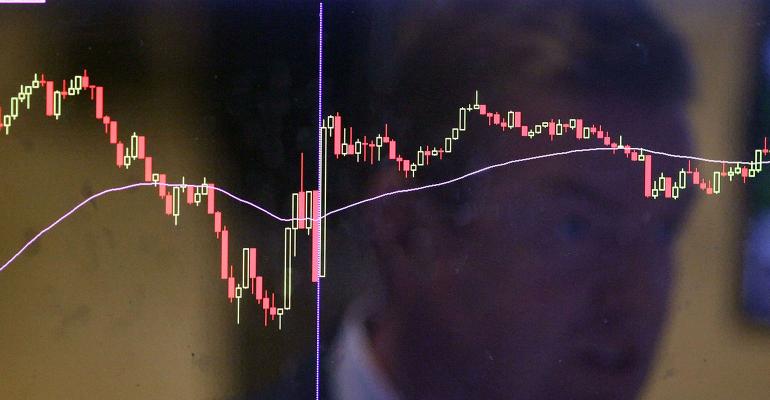(Bloomberg) -- Traders are lavishing billions of dollars on quant-powered stock trades, boosting an investing style that’s struggled to gain traction in an era when simple bets on traditional large-cap indexes have paid off handsomely.
Money managers have sunk nearly $48 billion into so-called equity smart-beta exchange-traded funds this year, either to ride the biggest market winners or to spread their exposures across the equity landscape.
Pioneered by Wall Street’s smartest minds decades ago, the rules-based allocation method dissects shares based on their traits like how cheap a company looks, dubbed value, or how fast its shares have risen, known as momentum.
After suffering outflows in January, these long-only systematic funds popular with the retail crowd — and offered by the likes of BlackRock Inc. and Vanguard Group Inc. — have now enjoyed five consecutive months of inflows and are on track to beat 2023’s haul.
“The performance stands for itself, with growth, momentum, and even valuation doing well across US markets,” said Patrick McDonough, managing director and portfolio manager at PGIM Quantitative Solutions. “The diversification-focus is driven by investors looking to enjoy the beta run-up that the Magnificent 7 provided, but wanting some divergence away from overly crowded trades.”
If this kind of inflows continue their spirited trajectory, 2024 will be a turnaround from last year when investor interest in factor strategies proved muted — other than those that simply bet on the hottest companies like quality and growth. While low-volatility factor has seen outflows for the past 14 months as markets remain risk-on, ETFs that combine exposure to multiple factors have enjoyed an inflow of nearly $12 billion year-to-date, according to data compiled by Bloomberg Intelligence.
Smart-beta ETFs are still on an extended streak of underperformance versus the tech-led S&P 500 while billions are flying into vanilla equity funds week after week. But in the telling of industry proponents, the investing style is working thanks to steady market conditions — and can help hedge portfolios if things go south.
With Wall Street largely making peace with elevated interest rates thanks to the resilience of the economic cycle, trading conditions have proved stable enough for quants to notch consistent gains by betting on reliable trading patterns. For example, assets have been rising and falling over an extended period, in a boost to trend following and related wagers.
Some 11 out of 13 long-short factor styles tracked by Bloomberg are up so far this year, a turnaround from 2023 when only two investing styles returned positive gains. A Bloomberg multi-factor model — offering exposure to value, momentum, low volatility and profitability factors — has notched a nearly 13% advance.
Read more: Hedge Funds Ride the Momentum-Trade Wave to Net Gains Everywhere
Of the more than 900 smart-beta ETFs, about 600 have no exposure to the Magnificent 7 stocks, according to Bloomberg Intelligence’s Athanasios Psarofagis. That, in theory, offers investors a way to get market exposure beyond the megacap tech stocks.
“Certain categories have much lower concentrations, which may appeal to investors seeking less top-heavy exposures,” the ETF analyst wrote in a recent note.
The big caveat comes from industry proponent Nicolas Rabener. In his view, these kinds of ETFs typically offer a less sophisticated approach to quant investing compared to a market-neutral trade, like the AQR Equity Market Neutral Fund. The latter, which bets on everything from value to momentum and places short bets, is up 16% this year.
“It seems that the calls for the death of factor investing have been premature and it still represents the most viable path for investors seeking to outperform stock markets,” Finominal’s Rabener wrote in a research note earlier this year. “However, factors are as cyclical as stock markets, and portfolio construction and implementation matter.”





